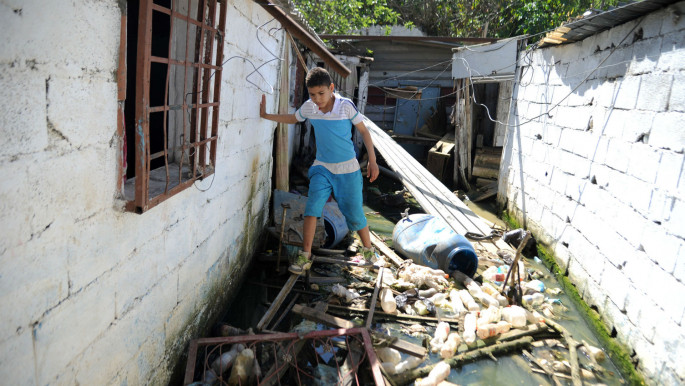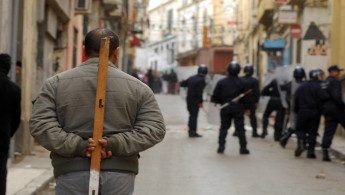Gangs of Algiers: Football, fights and failed government
"We don't need trouble" say many Algeriansrefusing to visit the town of Si-Mustapha, east of the capital Algiers.
Their refusal sums up the troubles witnessed by the town since the start of the year, after the government decided to build new housing developments in the town to house families from the El Harrach and Reghaia suburbs of the capital.
The mayor of Algiers has said that the decision is due to the lack of space in the capital, while the governor of Boumerdes Province, where Si-Mustapha is located, has promised to house locals in the new developments as well, however local residents still oppose the project.
Algeria's major cities are facing a housing crisis due to the lack of space, which has pushed the government to build housing developments in other cities where families eligible for social housing have been moved.
However, this has created unforeseen frictions between the new arrivals and the local residents.
Residents say they want to preserve their cohesion and fear that outsiders with different customs would be detrimental to the local community, in addition to fearing the propensity for violence among the youth being resettled in their community.
Locals have even taken to organising protests against the government decision and seem very cooperative when approached by the press, as they believe the media the only tool through which they can get their voices heard.
"We're one nation but we're afraid of the violence of the youths of those suburbs," said Faisal a high school student.
"We've seen how they behave in football matches. They enjoy turning every event into a fight".
"We used to get beaten up in their neighbourhoods. God only knows what they'll do to us here," added Faisal.
Khaled, a French teacher interjected to say that people are speaking as if there are no laws that govern the country and there are no security service to resolve fights and disputes.
"I'm saddened to see Europeans receive thousands of refugees from various countries while Algerians refuse to live with their own countrymen," said Khaled.
"The government needs to do something about this before we're ruled by the gangs," added Khaled.
Football gangs
 |
|
Hussein who runs a local theatre troupe explains that local residents hear about daily fights between new arrivals and local youth that result in regular injuries.
The memories of the violent 1990s are also fresh in the minds of locals, when outsiders came into their town and murdered the area's youth, therefore Hussein believes that local fears are justified when viewed objectively.
Nazim told al-Araby al-Jadeed that he was initially opposed to the demonstrations against new arrivals, however his position changed after an incident that occurred with his cousin.
"He escaped with his life. He came here seeking shelter after a fight in a new development in Constantine," said Nazim.
The young man's cousin and his family were housed by the government in a new development in the northeastern city on Constantine after moving from place to place due to the housing crisis.
The cousin soon found himself embroiled in a knife fight between locals and his fellow new arrivals and his currently in hiding with members of his extended family.
Al-Araby al-Jadeed managed to track down the cousin, who wished to remain anonymous, who said that he was not wanted by the police but by the local residents of the area he was moved to.
"You can't avoid the fights because you'll be treated as a traitor by your fellow new arrivals and open to attack by both sides," said the young fugitive.
He explained that fights could start for the simplest of reasons such as disputes over parking spaces an peer pressure ensures that everyone takes part in the fighting.
Another important reason for fights to erupt is different football allegiances, as new arrivals come into their new neighbourhoods with the colours and flags of football teams that are hated by locals, which is a huge point a friction according to the young man in hiding.
He called on the government to take social cohesion into account when making decisions about relocating people into social housing.
Failed policies
"Social cohesion is the element most lacking in government policies," said sociologist Mehdi Belhamiti. "What prevents the government from conducting social studies before rehousing people?" he asked.
"Studies prove that violence is more prevalent in urban settings as rural settings are usually more cohesive," Belhamiti told al-Araby al-Jadeed.
The sociologist believes that rehousing policies should only be implemented after careful study and after the government provides the adequate health, education, transportation and employment infrastructures to cope with the new arrivals.
"Housing developments are not merely walls and buildings, there are social spaces that require bonding agents to foster cohesion," said Belhamiti.



